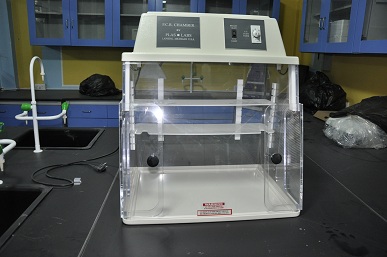|
The polymerase chain reaction (PCR) is a biochemical technology in molecular biology to amplify a single or a few copies of a piece of DNA across several orders of magnitude, generating thousands to millions of copies of a particular DNA sequence. The method relies on thermal cycling, consisting of cycles of repeated heating and cooling of the reaction for DNA melting and enzymatic replication of the DNA. Primers (short DNA fragments) containing sequences complementary to the target region along with a DNA polymerase (after which the method is named) are key components to enable selective and repeated amplification. As PCR progresses, the DNA generated is itself used as a template for replication, setting in motion a chain reaction in which the DNA template is exponentially amplified. PCR can be extensively modified to perform a wide array of genetic manipulations Applications 1-PCR allows isolation of DNA fragments from genomic DNA by selective amplification of a specific region of DNA 2-Amplification and quantification of DNA 3-In diagnosis of diseases PCR permits early diagnosis of malignant diseases such as leukemia and lymphomas also allows rapid and highly specific diagnosis of infectious diseases
|

